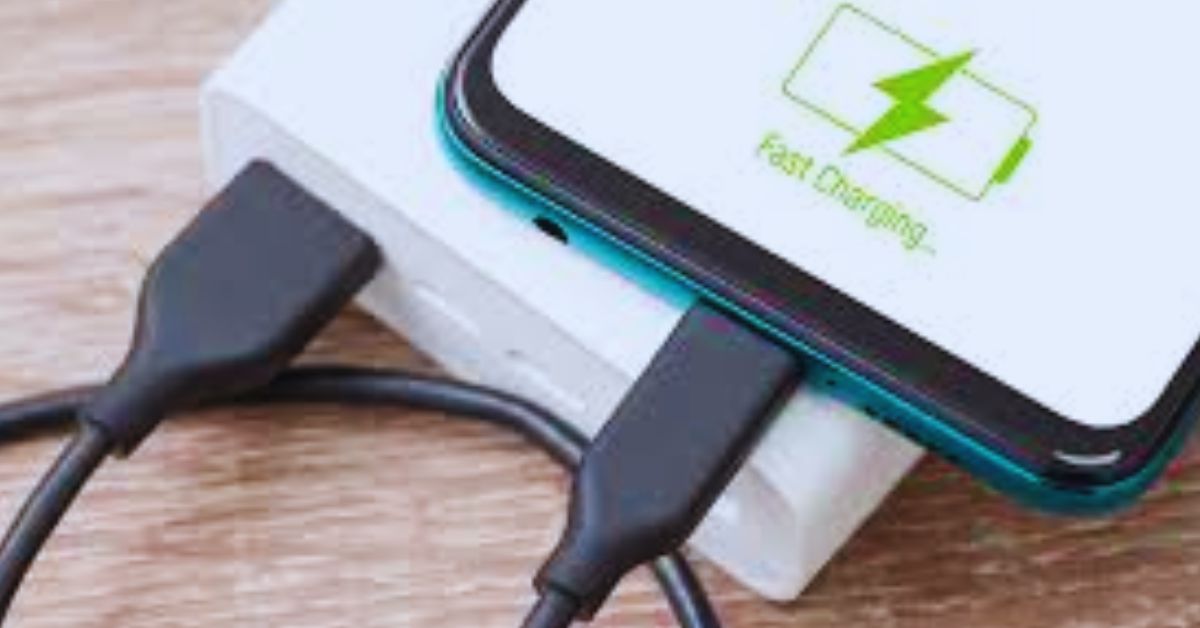As our reliance on mobile devices grows, fast charging technology has quickly become an essential feature. With a fast charger, it takes only minutes to add hours of battery life, keeping you connected on the go. But how does fast charging affect your battery’s lifespan? Does that speed come with a trade-off in longevity? In this article, we’ll explore how fast charging works, its effects on battery health, and practical tips to balance speed with long-term battery performance.
Understanding Fast Charging Technology
Fast charging allows smartphones and other devices to reach 50% or even 80% charge in as little as 15-30 minutes. It works by increasing the amount of current or voltage supplied to the battery, charging it significantly faster than conventional chargers. Different manufacturers implement various fast-charging standards, such as Qualcomm’s Quick Charge, Apple’s Fast Charge, or USB Power Delivery (PD). These technologies rely on batteries that can handle increased current or voltage without overheating or compromising safety.
Lithium-ion (Li-ion) batteries, the most common type in smartphones, tablets, and laptops, are designed to absorb rapid bursts of power. However, they are also sensitive to heat and high voltages, which can strain them if not properly managed.
How Fast Charging Impacts Battery Degradation
Battery degradation is a natural process that reduces the total charge a battery can hold over time. Every Li-ion battery has a limited number of charge cycles—typically between 300 to 500—before its capacity significantly drops. A charge cycle is defined as one complete discharge and recharge. Here’s how fast charging affects this degradation process:
- Increased Heat Generation
Heat is one of the primary causes of battery degradation, and fast charging generates more heat than slow charging. As the charging rate increases, so does the battery’s temperature, especially during the initial stages when the battery is charging rapidly. Although fast chargers are designed to monitor temperature and slow down the current if the battery becomes too hot, the excess heat can still damage the battery cells over time. - High Voltage Stress
To achieve fast charging, the voltage applied to the battery is often increased. Higher voltages help move ions within the battery more quickly, allowing it to charge faster. However, sustained exposure to high voltage can put stress on the battery’s internal structure, leading to faster wear and tear. Over time, this voltage stress contributes to capacity loss, reducing the battery’s ability to hold a charge. - Shorter Battery Lifespan
Studies show that fast charging generally leads to a faster decline in battery health compared to regular, slower charging. As heat and voltage stress accelerate wear, the battery’s effective lifespan shortens. This doesn’t mean your battery will suddenly fail, but you may notice a reduced capacity after a year or two of consistent fast charging use, requiring more frequent recharges to last through the day.
Benefits and Trade-Offs of Fast Charging
While fast charging can impact battery lifespan, it’s essential to consider the benefits it provides. The convenience of quickly recharging your phone can outweigh the gradual degradation, especially for those who are always on the go. However, frequent fast charging can noticeably reduce capacity over time, requiring a balanced approach.
Tips to Maximize Battery Health While Using Fast Charging
- Avoid Frequent Top-Ups with Fast Charging
Try to use fast charging primarily when you need a quick power boost. Relying on standard, slower charging overnight or during long periods can reduce battery strain and extend its lifespan. - Keep Your Device Cool
Temperature has a significant effect on battery health. Avoid charging your phone in direct sunlight or placing it on a surface that retains heat. Also, consider removing any heavy-duty cases that could trap heat while charging. - Stay Within the 20-80% Charging Range
Charging from 0% to 100% increases stress on the battery. To minimize wear, try to keep your battery level between 20% and 80%, particularly if you are using a fast charger. Partial charging reduces the overall strain on the battery, helping it last longer. - Avoid Overnight Fast Charging
Charging your phone overnight is convenient, but try not to use fast charging for this purpose. Trickle charging is gentler and better suited for long periods, ensuring your device isn’t under constant high-voltage stress. - Consider Battery-Saving Features
Many devices have built-in software that helps optimize charging patterns. For example, Apple’s Optimized Battery Charging and similar features on Android devices slow down charging once the battery reaches 80% if it detects the device won’t be in use for a while. Enabling these features can extend battery life while still taking advantage of fast charging.
Does Fast Charging Affect All Devices Equally?
Fast charging doesn’t have the same impact on every device. Advanced battery management systems, particularly in newer models, can reduce the stress placed on the battery, effectively minimizing the long-term impact of fast charging. Devices with advanced thermal management, multiple charging stages, and voltage optimization are better at handling fast charging without compromising battery health. Therefore, while older models may suffer more from fast charging, newer devices are better equipped to handle the increased power.
The Future of Fast Charging and Battery Longevity
As battery technology advances, manufacturers are continually finding ways to make fast charging safer and less harmful to battery health. Innovations such as graphene batteries, solid-state batteries, and improved thermal management systems promise to reduce the negative effects associated with fast charging. These future technologies aim to enhance both charging speed and battery lifespan, making it more viable to fast-charge without compromising long-term performance.
Final Thoughts:
Balancing Speed and Battery Health
Fast charging offers undeniable convenience, especially in our fast-paced world. While it does contribute to battery wear, using it mindfully can help minimize the negative impact. By implementing practices like charging at moderate levels, keeping devices cool, and using fast charging only when necessary, you can strike a balance between speed and battery longevity.
